Taking a significant step forward for conservation technology, WWF-Hong Kong and the United Nations University Institute in Macau (UNU Macau) just formalised a partnership that promises to revolutionise environmental protection through digital innovation. On 2 July 2025, the two organisations signed a Memorandum of Understanding establishing a framework that will leverage cutting-edge technologies to address pressing conservation challenges.
This strategic agreement unites WWF’s conservation expertise with UNU Macau's advanced digital technology research capabilities. It will focus on three critical areas: AI applications, policy innovation and knowledge exchange.
The AI applications component will involve joint research initiatives deploying AI solutions for wetland and ocean monitoring, biodiversity conservation and visitor management systems. Policy innovation will see sophisticated tools developed to combat wildlife crime and implement One Health approaches to global health challenges; and through knowledge exchanges, both organisations will build capacity for AI-driven technology to conduct wildlife monitoring and forecasting for zoonotic disease prediction and prevention.
The MoU signing ceremony, themed “AI for Nature: Enabling Partnerships for Green Transformation”, took place at UNU Macau with leaders from both organisations sharing their vision of how this partnership will play out. The event showcased practical conservation applications for AI, including smart conservation initiatives at Mai Po Nature Reserve. A fireside chat brought together experts from various sectors, including the Bank for International Settlements Innovation Hub, KPMG, ATOS, UNU Macau, and WWF-Hong Kong. Their conversation centred on AI and how it can enable cross-sector teamwork, ethical considerations and future opportunities.
“Digital technologies have remarkable potential, particularly in terms of conservation and combating the illegal wildlife trade”, said Ms Nicole Wong, CEO of WWF-Hong Kong. “In recent years, we have successfully deployed smart solutions using Internet of Things and AI that are enhancing our wetland and marine conservation work and helping us devise new wildlife crime prevention tools”, she continued.
Dr Jingbo Huang, Director of UNU Macau, emphasised the school’s commitment to advancing digital technology research, training and education for sustainable development, and highlighted the importance of global cooperation to address challenges, especially in the Global South.
Under the MoU, both organisations will actively cooperate via collaborative research initiatives, seminars, workshops, and conferences, demonstrating how advanced technologies can enhance ecosystem monitoring and management to produce effective conservation outcomes.
The significance of the WWF-Hong Kong-UNU Macau partnership extends far beyond technological applications. As established yet evolving cities at the intersection of technology and environmental issues, Hong Kong and Macau are uniquely positioned to demonstrate how AI-driven solutions can transform conservation. By addressing local and regional environmental challenges, this partnership can be an example to the world of how innovative tools can help fight biodiversity loss and climate change.
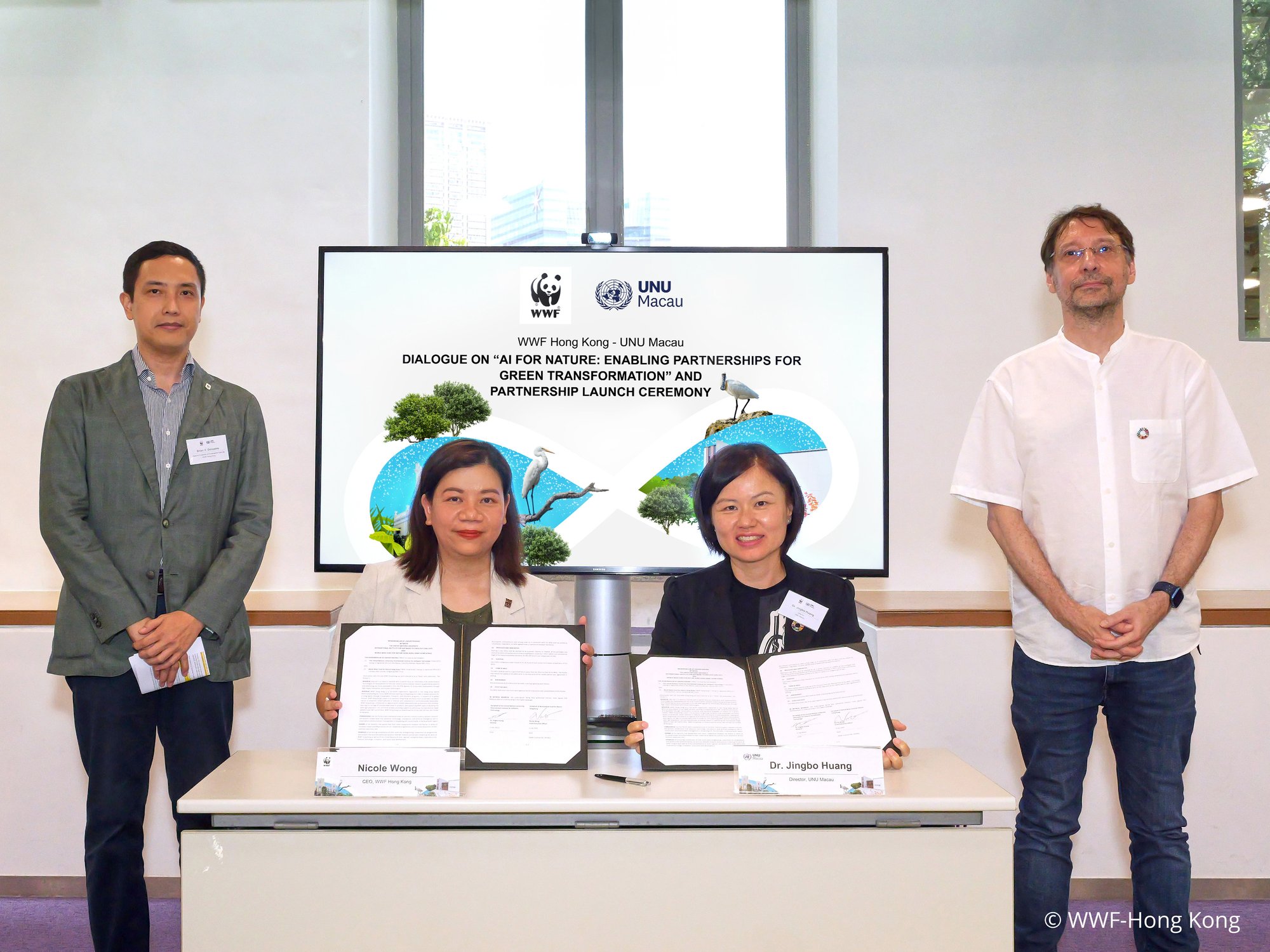
Representatives at the signing ceremony. From left to right, Mr Brian V. Gonzales, Head of Protection of Endangered Species at WWF-Hong Kong; Ms Nicole Wong, CEO of WWF-Hong Kong; Dr Jingbo Huang, Director of UNU Macau; and Dr Serge Stinckwich, Head of Research at UNU Macau
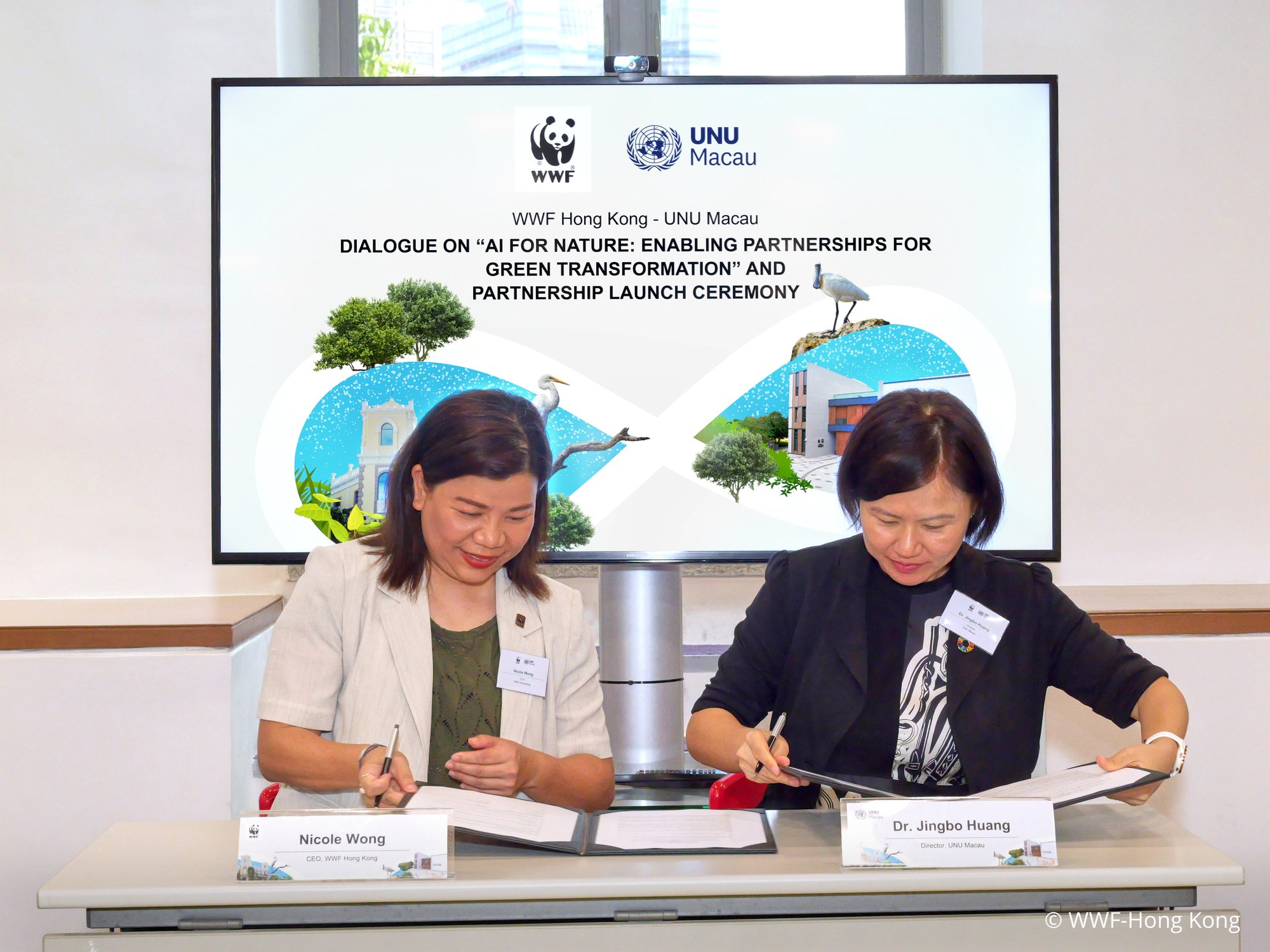
Ms Nicole Wong, CEO of WWF-Hong Kong and Dr Jingbo Huang, Director of UNU Macau, signing the MoU
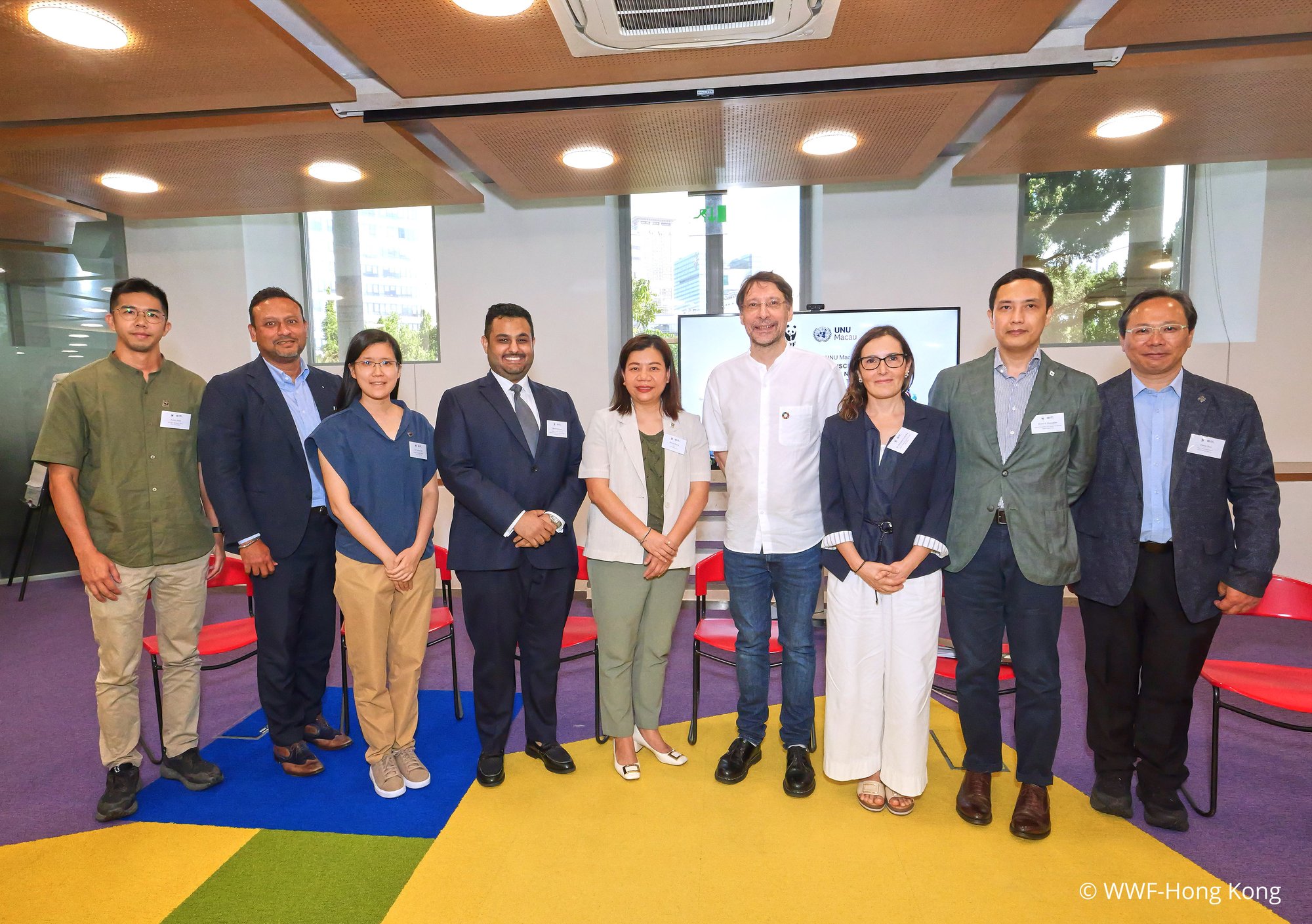
Leaders and experts from different sectors sharedtheir experiences of utilising technology for the benefit of the natural world,and discussed the many potential uses of AI for nature

The MoU signing ceremony, “AI for Nature: Enabling Partnerships for Green Transformation”, took place in Macau and was attended by experts and stakeholders from various sectors
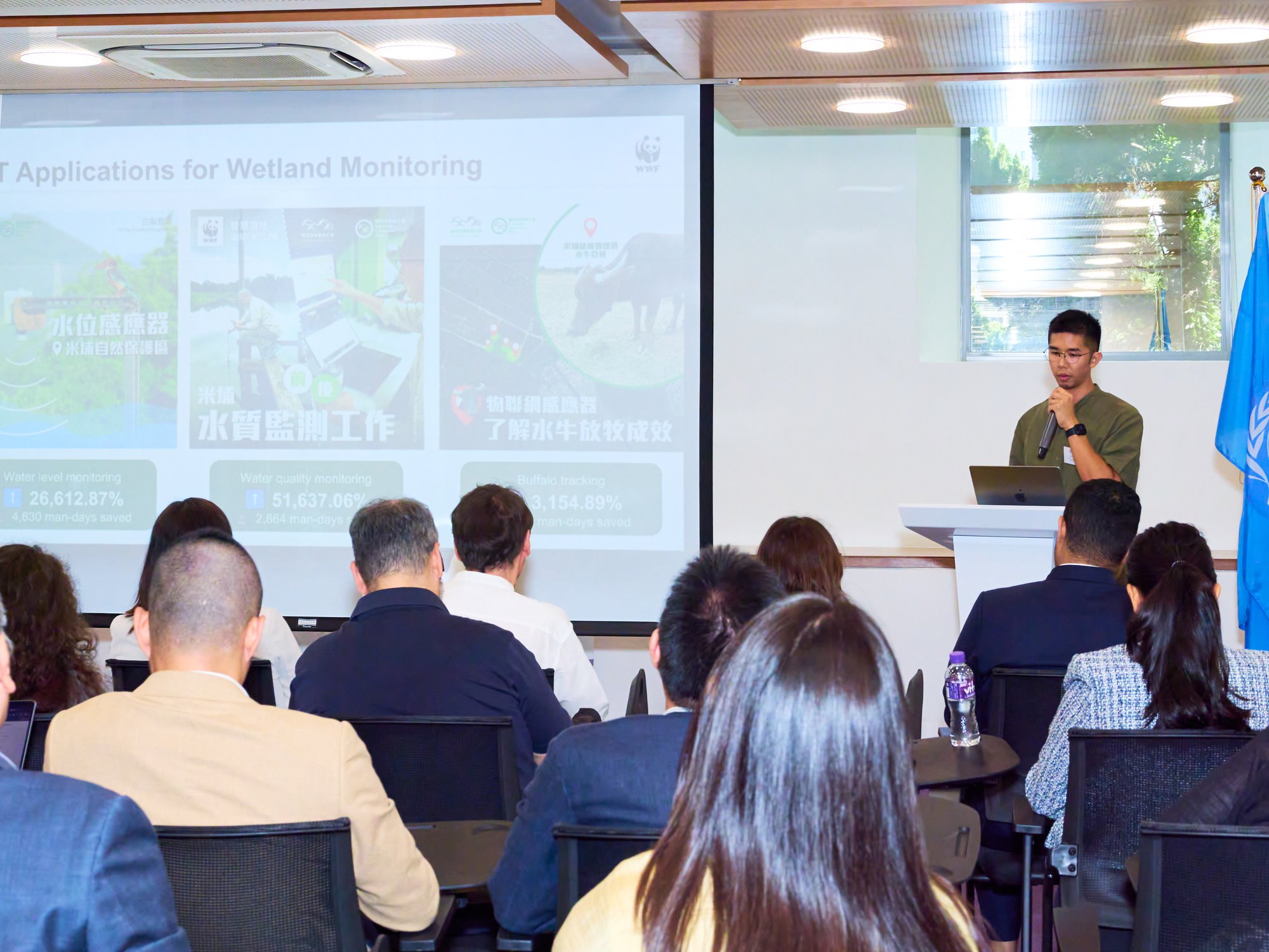
Caleb Choi, Manager of Wetland Habitats at WWF-Hong Kong, presents how we utilise smart technology to enhance habitat health at Mai Po Nature Reserve
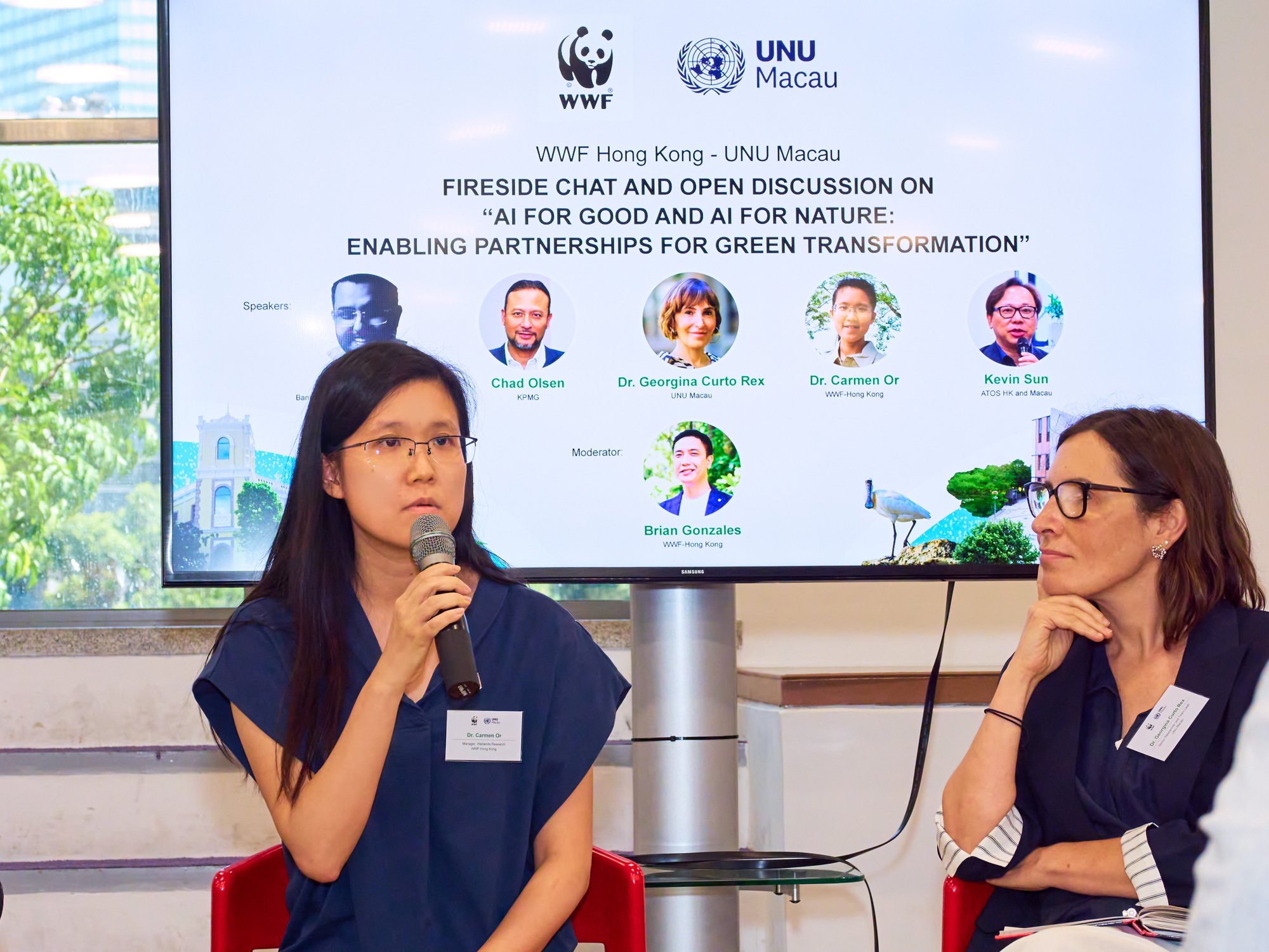
During the fireside chat, Dr Carmen Or, Managerfor Wetlands Research at WWF-Hong Kong (left), describes her experienceleveraging AI to detect Eurasian otters in Mai Po, and how this contributes to otterresearch, monitoring work and habitat conservation efforts